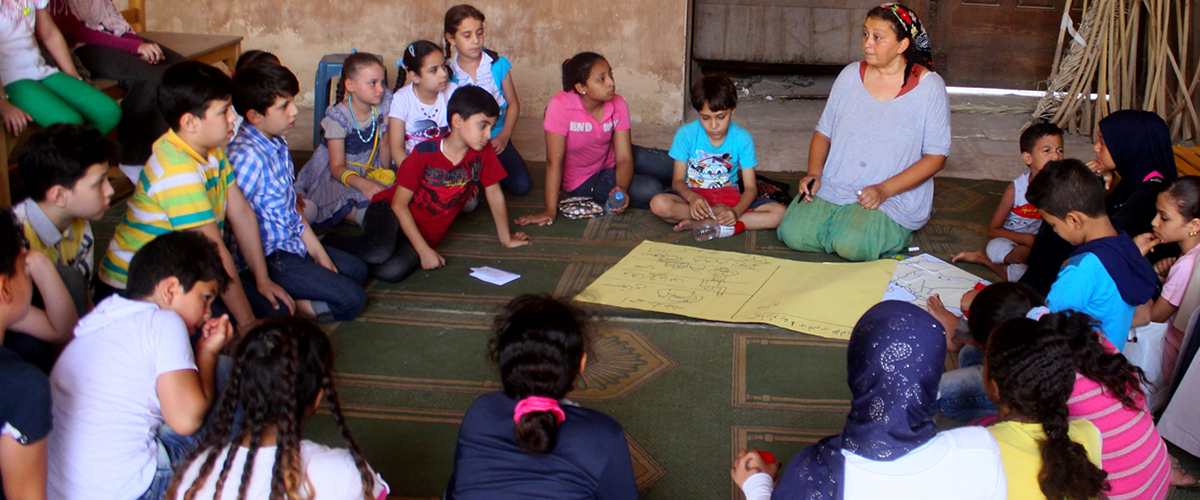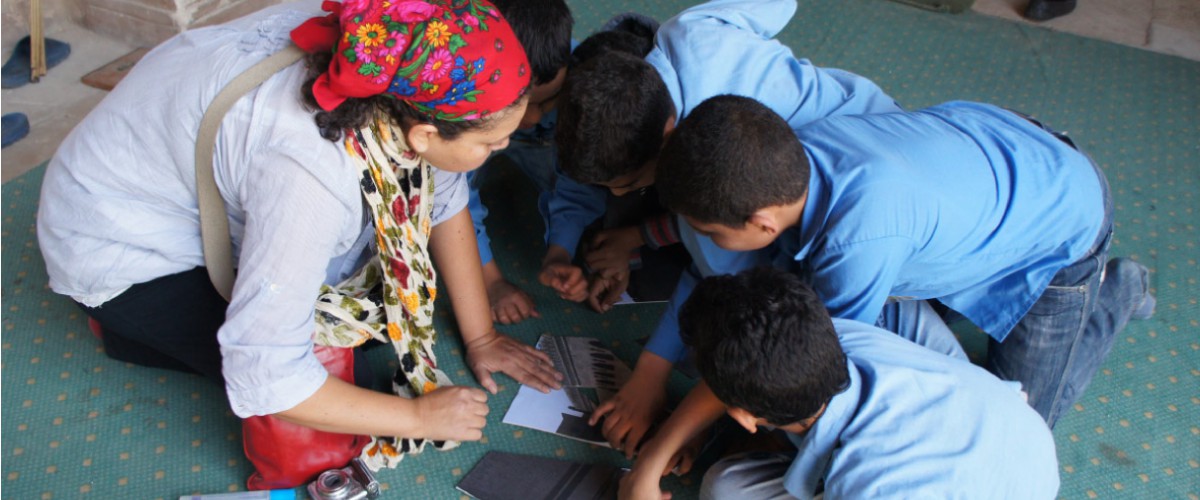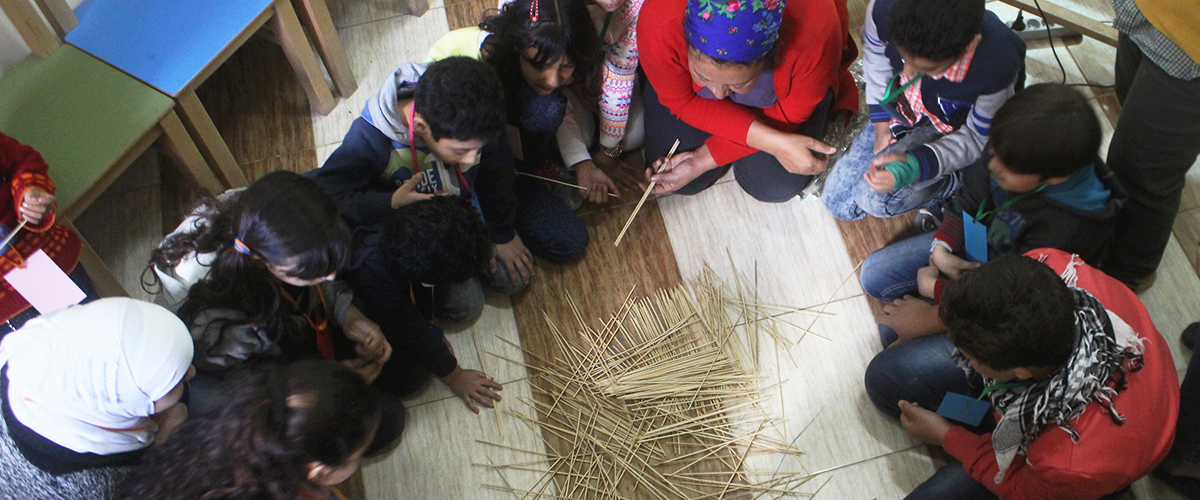






Athar Lina | Fus-ḥa is a seven-month project funded by UNHCR and coordinated by the Built Environment Collective | Megawra in collaboration with Terre des Hommes. Its aim is to promote peaceful coexistence among Syrian children refugees and their host community in Cairo through emphasising common historical links between Egypt and Syria. Close to 200 Syrian and Egyptian children participated in interactive visits to historical sites in the neighbourhood of al-Khalifa in Historic Cairo, discussed history within themes that centred on the meaning of family, the family home, the value of play and the benefits of travel, and expressed their understanding of these issues through storytelling and visual art.
Atha Lina Fusha Facilitators manual
Know more about each theme/ kit
page under construction
page under construction
page under construction
page under construction


